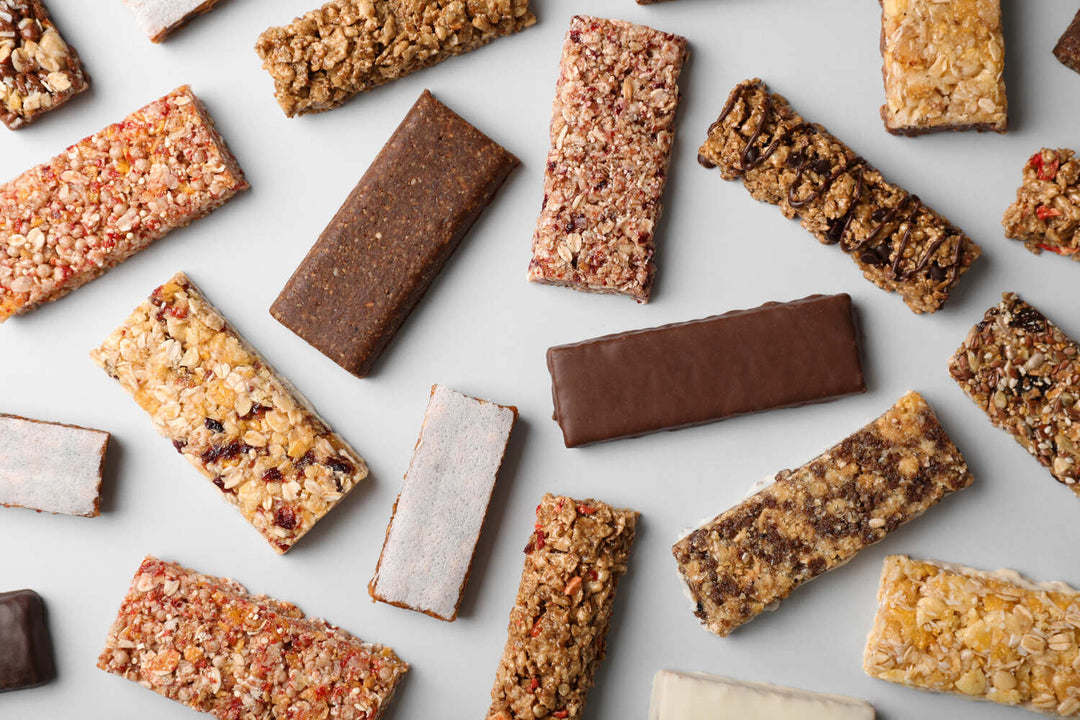When to Eat Protein Bars
At Unjury®, we know that protein bars can be more than just a convenient snack—they play an essential role in recovery and healing.*
If you're preparing for or recovering from bariatric surgery, managing wound care, or undergoing medical treatment, you've come to the right place.
In this article, we explore exactly when to eat protein bars and how proper timing can make a real difference in your health and recovery journey.
Whether you're looking to optimize your protein intake before surgery or need to maintain your strength during treatment, we've got you covered.
So, if you're ready to learn more about the best times to incorporate protein bars into your routine, continue reading.
What this article covers:- What Are Protein Bars?
- Why You Should Eat Protein Bars
- When to Eat Protein Bars
- Facts About Protein Bars
- Reference
What Are Protein Bars?
Protein bars are handy, prepackaged snacks filled with essential proteins, sometimes accompanied by vitamins, minerals, and other nutrients.
High-protein bars and other high-protein snacks can be used at meal times, too, especially if you don’t have time to prepare whole-food protein. They provide a boost of protein and may help you stay full longer after a meal.
Keep in mind that some protein bars are made from higher quality ingredients than others. Patients should work with their dietitian to learn which protein sources are best and how to add more protein to their diet.

Why You Should Eat Protein Bars
Protein bars are excellent for meeting your daily protein needs, particularly when eating full meals isn't possible.
For individuals recovering from surgery, including bariatric surgery, consuming high-quality protein helps your body heal faster and retain muscle mass.
You may be wondering, “does protein make you feel full?” Absolutely. Protein can curb hunger, helping you stay satisfied longer, which can be beneficial when your caloric intake is restricted post-surgery or during medical treatments.
When to Eat Protein Bars
Timing your protein bar intake is crucial. Here's when to consider:
- Pre-surgery: Getting in high-quality protein before a surgical procedure can help with wound healing, immune function, muscle preservation, energy, levels, and more.¹ It’s important to get nutrition from whole food sources first, and then when protein needs are increased, protein supplements and protein bars can further support recovery.*
- Post-surgery: After surgery, your body needs protein to heal tissues and prevent infections.² We recommend eating a protein bar as a snack between meals. This can help you meet your protein requirements without overloading your stomach, which is crucial for healing.*
- Wound care: Protein plays a key role in wound healing.² During wound recovery, adding a daily protein bar or protein supplements cleared by your healthcare practitioner can provide your body with the building blocks necessary for tissue repair, helping to speed up the recovery process.*
- Medical treatments: Protein bars with limited ingredients can be a gentle protein option, making them ideal for maintaining strength during medical treatments. They can be a convenient way to ensure you're getting enough nutrients, even when your appetite is low or your energy is depleted.
- Postworkout: For athletes or anyone focused on maintaining muscle mass, protein supplements, including protein bars, can serve as a valuable postworkout snack. How much protein should an athlete eat? Depending on the intensity of your training, aim for 1.2 to 2.0 grams of protein per kilogram of body weight. Incorporating protein bars can help you meet these daily goals, whether after exercise or as a midday protein boost.*

Facts About Protein Bars
We know that not all protein bars are created equal. Some are loaded with sugar and unnecessary additives, so always read the label.
Look for bars with clean ingredients, minimal sugar, and a good balance of carbohydrates and fats.
You can also get creative with how you consume them. Have you ever wondered how to add protein to salad? Crumbling a protein bar over your greens can be a quick way to boost your salad's protein content.
Conclusion
Fueling your recovery with the right nutrition can be a game-changer. Protein bars are more than just convenient—they can be a powerful tool for supporting healing, boosting energy, and maintaining muscle mass during critical times.*
Whether you're preparing for surgery, recovering from it, managing wound care, or undergoing medical treatment, strategic timing of your protein intake can make all the difference in your well-being.
At Unjury, we're here to help you every step of the way. Our high-quality protein products are designed with your specific recovery needs in mind.
Ready to elevate your healing journey? Discover Unjury's tailored solutions and start your path to better health today.
If you want to learn more, why not check out these articles below:
Reference
- Hirsch KR et al. Nutrients. 2021;13(5):1675.
- Wang X et al. Evid Based Complement Alternat Med. 2022;2022:4231516.
*These statements have not been evaluated by the Food and Drug Administration. These products are not intended to diagnose, treat, cure, or prevent any disease.










